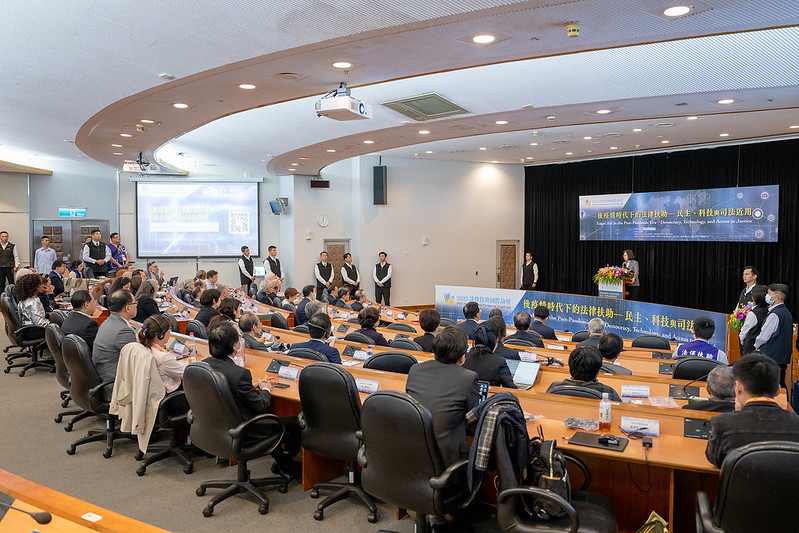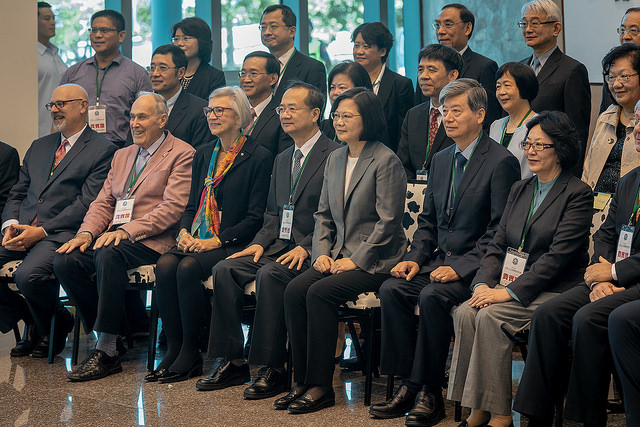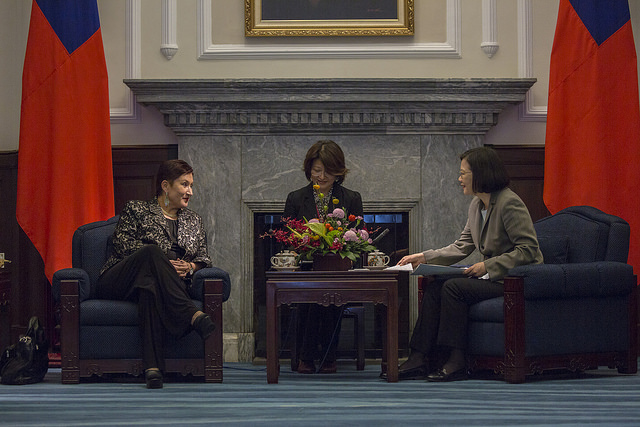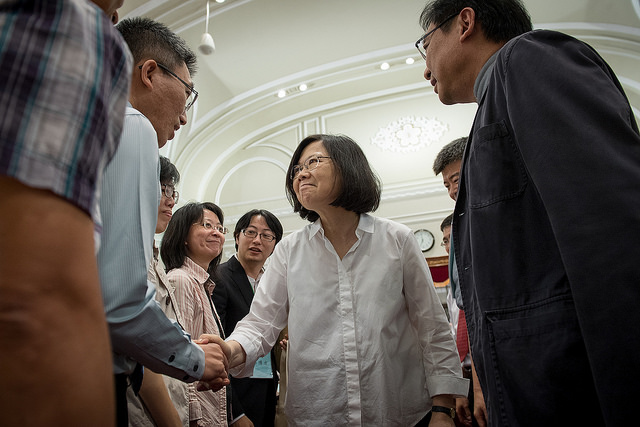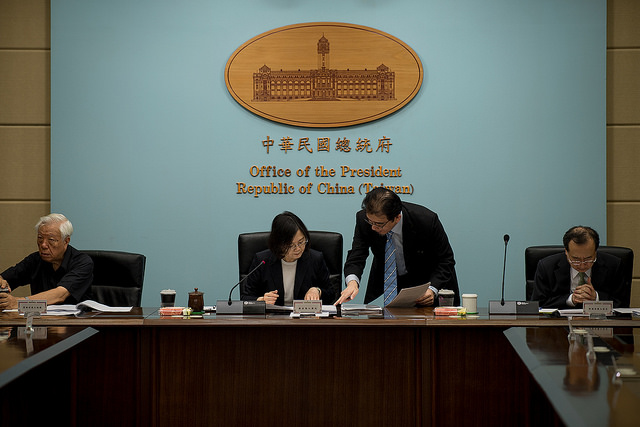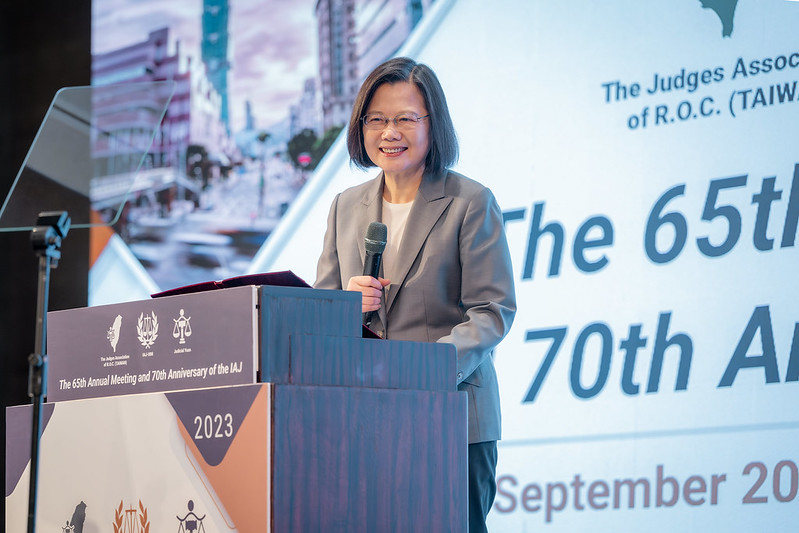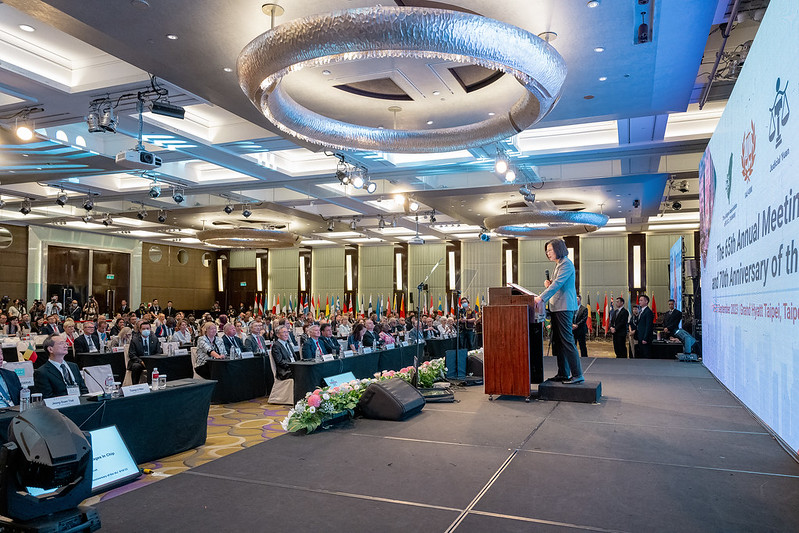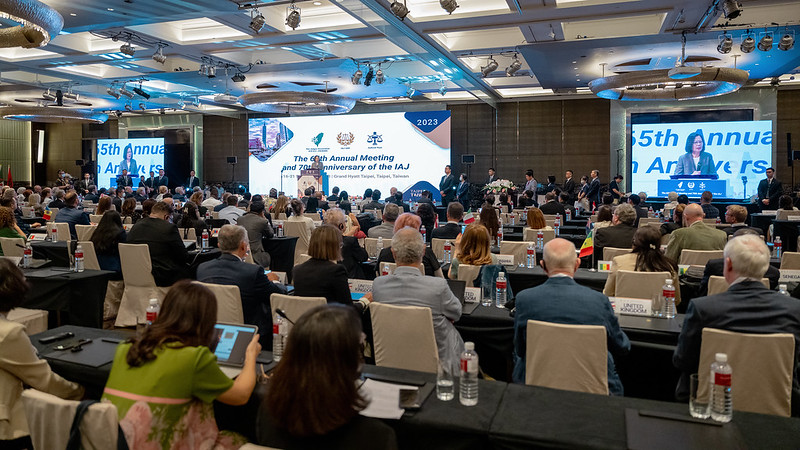News & activities
 News releases
News releases
On the morning of September 18, President Tsai Ing-wen attended the 65th annual meeting and 70th anniversary of the International Association of Judges (IAJ). In remarks, the president said that amid a rapidly changing global landscape, it is crucial that there is continued dialogue on how to best protect and improve the functioning of the judiciary. She stated that the pursuit of human rights is never ending, and that as new eras bring new challenges and revolutionary ideas, we must continue to work even harder to ensure comprehensive human rights protections.
President Tsai emphasized that Taiwan is acutely aware of the importance of judicial independence and that our commitment to democracy drives our efforts to build a judicial system that is transparent, accountable, and responsive to the people it serves. The president noted that this year, Taiwan introduced a citizen judge system to incorporate a more diverse set of perspectives in the judicial process. She said that by having members of the public participate in this process alongside professional judges, we hope to help ensure fairness and foster greater trust in the judiciary. The president added that Taiwan is working tirelessly to achieve the highest international standards of judicial independence and human rights protections, in part through the establishment of the National Human Rights Commission in 2020, which monitors our implementation of international human rights conventions to meet the international benchmark.
A transcript of President Tsai's remarks follows:
To begin, I want to thank the JAROC [the Judges Association of Republic of China (Taiwan)] for hosting the 65th IAJ annual meeting, and I'm also pleased to join the IAJ to celebrate its 70th anniversary. I also want to welcome everyone who has traveled to Taiwan for this meeting. It is a pleasure to have you all here to discuss judicial independence, which is the pillar of democratic societies. As someone who studied and taught law for a long time, I must say that it is an honor to be in a room with so many esteemed judges and legal experts.
In fact, this is not the first time the IAJ has set a major milestone here in Taiwan. When Taipei hosted the annual meeting in 1999, the IAJ adopted the Universal Charter of the Judge.
This landmark document has helped enshrine the value of judicial independence. It states that the core functions of judges are to "ensure the rights of everyone to a fair trial" and to uphold the rule of law. And for such functions, judicial independence is indispensable. The charter also notes that judges need to maintain impartiality in order to "exercise judicial powers free from social, economic, and political pressure."
Although these principles may provide a blueprint for protecting the integrity of judges, we cannot take judicial independence for granted. It must be continuously upheld through individual commitments and institutional protections.
In Taiwan, we are acutely aware of the importance of judicial independence. Having achieved democracy after decades of authoritarian rule, we have no room to compromise on our democratic freedoms and the principles that sustain them.
It is our commitment to democracy that drives our efforts to build a judicial system that is transparent, accountable, and responsive to the people it serves.
This year, we introduced the citizen judge system to incorporate a more diverse set of perspectives in the judicial process. By having members of the public participate in this process alongside professional judges, we hope to help ensure fairness and foster greater trust in the judiciary.
As our judicial system continues to evolve, the role of judges in upholding the constitution and the rule of law is of critical importance. With no guarantee for the rule of law by impartial and independent judges, there can be no guarantee for the protection of human rights.
The IAJ provides strong support to a global community of judges dedicated to defending judicial integrity and human dignity, most notably through its constant work to deepen the professional knowledge of its members. This year's Constitutional Law Forum is part of this effort to facilitate in-depth conversations on judicial independence and constitutionalism, as well as some of the most pressing threats to these essential principles.
Amid a rapidly changing global landscape, it is crucial that there is continued dialogue, like today's, on how to best protect and improve the functioning of the judiciary. And with new challenges constantly emerging, the judiciary will have to adapt and become more resilient, so that they can stand up to any form of political pressure, be it domestic or international.
History shows us that the pursuit of human rights is never ending. New eras bring new challenges and revolutionary ideas. This is why we must continue to work even harder to ensure comprehensive human rights protections. To this end, we in Taiwan are working tirelessly to achieve the highest international standards of judicial independence and human rights protections.
As part of our efforts, Taiwan established a National Human Rights Commission in 2020, which monitors our implementation of international human rights conventions. Several of such conventions, including CEDAW [the Convention on the Elimination of All Forms of Discrimination against Women] and ICCPR [the International Covenant on Civil and Political Rights], have also been incorporated into domestic law to meet the international benchmark of human rights.
To conclude, I want to thank the members of the IAJ for coming to Taiwan and sharing your knowledge, experiences, and expertise.
I hope you all have a pleasant stay in Taiwan. Please take some time to experience our culture and enjoy our beautiful scenery and, of course, delicious food. I wish you a successful meeting and a happy 70th anniversary to the IAJ.
IAJ President José Igreja Matos was also in attendance at the event.
